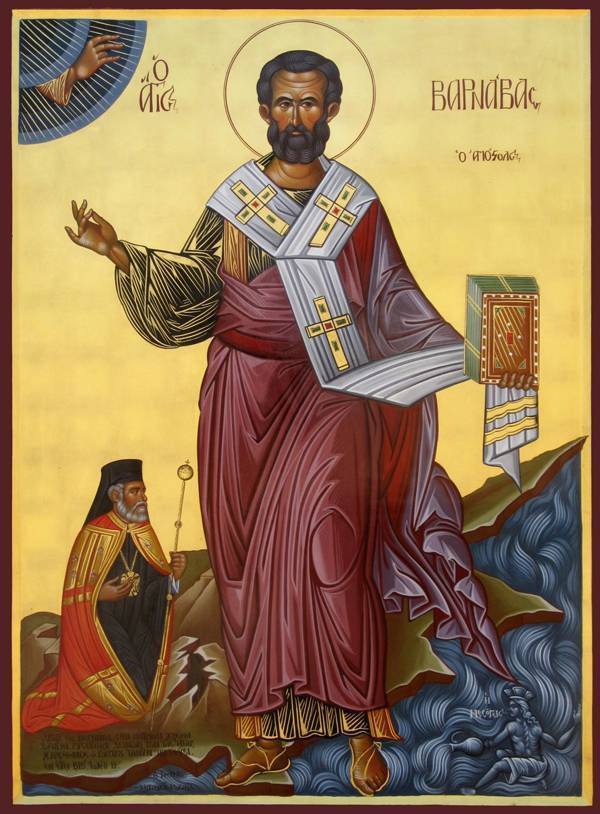Saint Barnabas, a Jew of Cyprus, was not one of the original Twelve apostles, but is honored as an apostle because of his work of evangelization in the early Church. He was closely associated with Saint Paul, with whom, as we heard in our first reading today, he was sent out on mission. In this mission, Saint Barnabas served as a kind of mediator between Paul, formerly known as Saul, a persecutor of Christians, and the Jewish Christians, who were still, understandably, suspicious of this man who used to persecute Christians throughout Jerusalem.
When a Christian community developed at Antioch, Barnabas was sent as the official representative of the Church of Jerusalem to incorporate them into the fold. He and Paul taught in Antioch for a year, after which they took relief contributions to Jerusalem.
We see in today’s first reading that Saints Paul and Barnabas had become accepted in the community as charismatic leaders who led many to convert to Christianity. The Holy Spirit set them apart for Apostolic work and blessed their efforts with great success.
Above all, these men desired to be salt for the earth and light for the world, as Jesus called us to be in today’s Gospel reading. Just as they led many people then to that kind of life through their words and actions, so their witness calls us to follow that same kind of life today.
As we celebrate the Eucharist today, we might follow their call witness by examining our lives and our own lived discipleship. How willing are we to extend ourselves and reach out to others and not be bound by mere human precepts? In other words, how willing are we to give of ourselves no matter how other people might interpret that? How willing are we to do the unpopular thing and stand up for others? How do we live our call as believers? Do we actively seek to be salt and light in the world? Blessed are we who follow the example of St. Barnabas and blessed are we who benefit from his intercession.
Saint Barnabas, pray for us.
